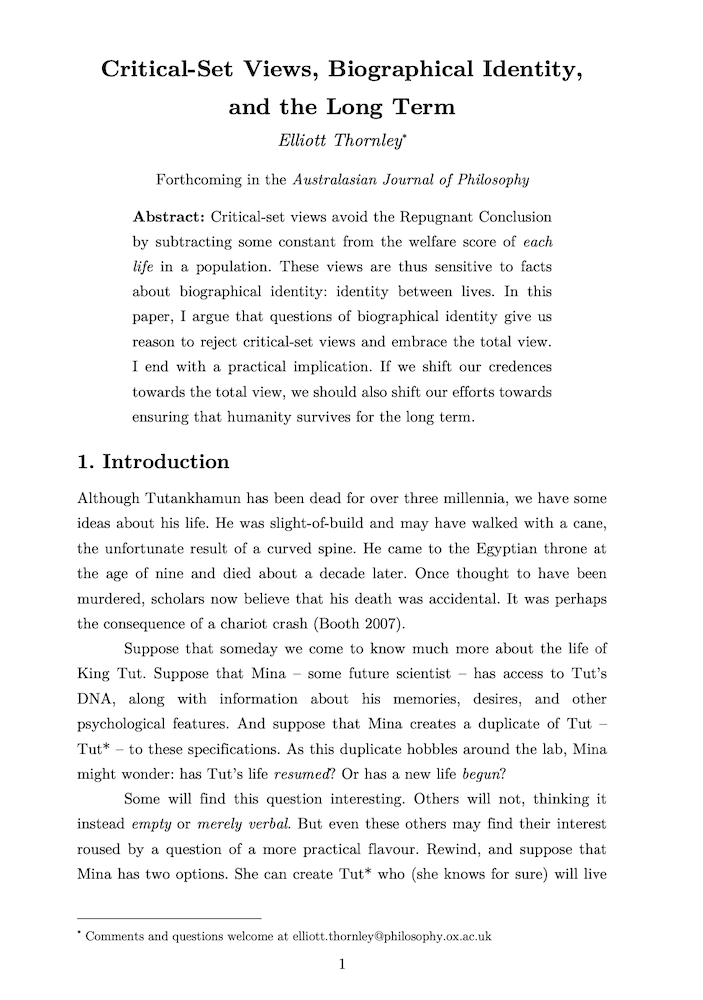Critical-set views, biographical identity, and the long term
Elliott Thornley (Global Priorities Institute, University of Oxford)
GPI Working Paper No. 7-2024, forthcoming in the Australasian Journal of Philosophy
Critical-set views avoid the Repugnant Conclusion by subtracting some constant from the welfare score of each life in a population. These views are thus sensitive to facts about biographical identity: identity between lives. In this paper, I argue that questions of biographical identity give us reason to reject critical-set views and embrace the total view. I end with a practical implication. If we shift our credences towards the total view, we should also shift our efforts towards ensuring that humanity survives for the long term.
Other working papers
Estimating long-term treatment effects without long-term outcome data – David Rhys Bernard (Paris School of Economics)
Estimating long-term impacts of actions is important in many areas but the key difficulty is that long-term outcomes are only observed with a long delay. One alternative approach is to measure the effect on an intermediate outcome or a statistical surrogate and then use this to estimate the long-term effect. …
Concepts of existential catastrophe – Hilary Greaves (University of Oxford)
The notion of existential catastrophe is increasingly appealed to in discussion of risk management around emerging technologies, but it is not completely clear what this notion amounts to. Here, I provide an opinionated survey of the space of plausibly useful definitions of existential catastrophe. Inter alia, I discuss: whether to define existential catastrophe in ex post or ex ante terms, whether an ex ante definition should be in terms of loss of expected value or loss of potential…
The structure of critical sets – Walter Bossert (University of Montreal), Susumu Cato (University of Tokyo) and Kohei Kamaga (Sophia University)
The purpose of this paper is to address some ambiguities and misunderstandings that appear in previous studies of population ethics. In particular, we examine the structure of intervals that are employed in assessing the value of adding people to an existing population. Our focus is on critical-band utilitarianism and critical-range utilitarianism, which are commonly-used population theories that employ intervals, and we show that some previously assumed equivalences are not true in general. The possible discrepancies can be…

